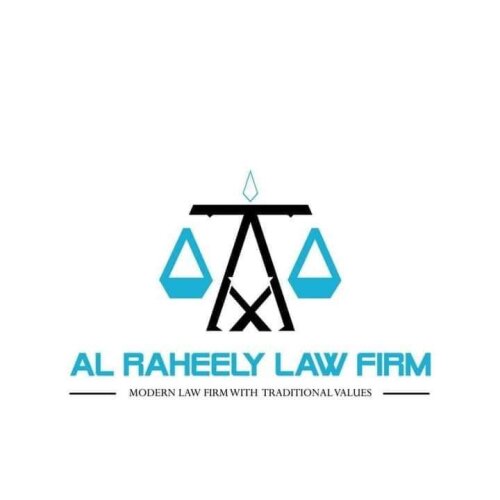Best Corporate & Commercial Lawyers in Egypt
Share your needs with us, get contacted by law firms.
Free. Takes 2 min.
Or refine your search by selecting a city:
List of the best lawyers in Egypt
Egypt Corporate & Commercial Legal Questions answered by Lawyers
Browse our 1 legal question about Corporate & Commercial in Egypt and read the lawyer answers, or ask your own questions for free.
- عقود الامتيازات التجارية والخدمات
- تفاصيل اكثر للحصول والدعم للحصول على أمتياز تجاري
-
Lawyer answer by Alraheely Law Firm
Good Afternoon. Through our work and achievements in mergers and acquisitions, commercial franchises and other commercial contracts, we provide you with a range of services and comprehensive legal support regarding franchise agreements, including non-disclosure agreements and field support inside and...
Read full answer
About Corporate & Commercial Law in Egypt
Corporate and commercial law in Egypt encompasses the rules, regulations, and principles that govern business activities, company formation, mergers and acquisitions, foreign investment, contracts, and regulatory compliance. As one of the largest economies in the Middle East and North Africa, Egypt offers a dynamic business environment that is shaped by both local laws and international business practices. Corporate & commercial law is key in facilitating business operations, ensuring fair competition, and protecting the rights and obligations of companies, investors, and other stakeholders within Egypt.
Why You May Need a Lawyer
Engaging a corporate or commercial lawyer in Egypt can be essential in a variety of situations. Common scenarios include:
- Starting a new business or establishing a company in Egypt
- Drafting, reviewing, or negotiating contracts
- Handling mergers, acquisitions, or joint ventures
- Navigating investment regulations, particularly for foreign investors
- Complying with tax laws and filing requirements
- Resolving business disputes or litigation
- Protecting intellectual property rights
- Dealing with employment matters or labor disputes
- Ensuring regulatory compliance and avoiding penalties
- Winding up or restructuring companies
Given the complexity of Egyptian laws and the evolving commercial landscape, having knowledgeable legal support can prevent costly mistakes, reduce risk, and ensure your interests are protected.
Local Laws Overview
Corporate and commercial activities in Egypt are governed by a mix of local legislation, regulations, and international agreements. Key legal frameworks include:
- Companies Law No. 159 of 1981 (and amendments): The principal law regulating most company forms, incorporation procedures, management structures, and shareholder rights.
- Investment Law No. 72 of 2017: Encourages both local and foreign investment, offering incentives and clarifying procedures for setting up investment projects in Egypt.
- Commercial Law No. 17 of 1999: Covers commercial obligations, agency, bankruptcy, and commercial contracts.
- Capital Market Law No. 95 of 1992: Regulates securities, stock exchanges, and public offerings.
- Intellectual Property Law No. 82 of 2002: Protects trademarks, patents, copyrights, and industrial designs.
- Labor Law No. 12 of 2003: Sets out the rights and obligations of employers and employees.
- Tax Laws: Cover corporate taxation, value-added tax (VAT), and other fiscal requirements for businesses.
A unique aspect of Egypt’s framework is the distinction between free zone and non-free zone companies, each with different benefits and regulations. Additionally, foreign ownership restrictions, licensing, and ongoing compliance obligations must be considered before starting or operating a business in Egypt.
Frequently Asked Questions
What are the main types of companies in Egypt?
The most common company types are joint stock companies, limited liability companies, and sole proprietorships. Each has distinct incorporation requirements, capital thresholds, and management structures.
Can a foreigner own 100 percent of a company in Egypt?
Generally, foreigners are allowed full ownership in many sectors, especially under the Investment Law. However, certain sectors have restrictions or require local partners.
How long does it take to register a company in Egypt?
Company registration typically takes between two weeks and one month, depending on the legal form and the documentation provided.
What taxes must companies pay in Egypt?
Companies are subject to corporation tax, VAT, payroll tax for employees, and social insurance contributions. Rates and requirements can vary based on the type of business and sector.
Do contracts need to be in Arabic?
While contracts between private parties do not always require Arabic, official documents submitted to authorities usually require an Arabic version. It is advisable to prepare bilingual contracts to avoid misunderstandings.
What are the key steps in a merger or acquisition?
Key steps include due diligence, negotiating terms, obtaining necessary regulatory approvals, notifying or receiving clearance from competition authorities, and completing contract formalities.
How does dispute resolution work in Egypt?
Business disputes can be resolved through litigation in local courts or, if agreed, via arbitration. Egypt is a party to several international arbitration conventions, making it a viable option for cross-border disputes.
What are the legal requirements for hiring employees?
Businesses must register employees with social insurance, provide written contracts, comply with minimum wage and working hour regulations, and adhere to conditions for termination and severance.
Are there any incentives for foreign investors?
Yes, the Investment Law provides incentives such as reduced customs duties, tax exemptions in certain zones, and easier procedures for repatriating profits.
Is intellectual property protection strong in Egypt?
Egypt has modern intellectual property laws and is a member of several international treaties, though enforcement may pose challenges in practice. Registration is recommended for maximum protection.
Additional Resources
For more information and assistance regarding corporate and commercial matters in Egypt, you can reach out to the following bodies:
- General Authority for Investment and Free Zones (GAFI) - Main regulator for company incorporation and investment projects
- Egyptian Financial Regulatory Authority (FRA) - Regulates securities, non-banking financial markets, and insurance
- Egyptian General Authority for Industrial Development (IDA) - Oversees industrial licenses and operations
- Ministry of Trade and Industry - Offers guidance on commercial activities and trade regulations
- Egyptian Commercial Registry - For all matters related to commercial registration
- Local Chambers of Commerce - Provide resources and support for businesses
- Intellectual Property Office of Egypt - For IP registration and queries
Next Steps
If you are considering business activities, investments, or resolving a commercial issue in Egypt, the following steps are recommended:
- Clearly define your business goals and legal needs
- Gather all relevant documents such as identification, business plans, and previous contracts
- Consult with a qualified corporate or commercial lawyer who understands both local and international business practices
- Determine the appropriate company structure or legal solution for your objectives
- Ensure compliance with all regulatory, tax, and labor requirements
- Keep updated with changes in Egyptian laws and regulations as they evolve
Seeking professional legal advice early in the process can help you avoid common pitfalls, take advantage of available incentives, and ensure your business operates smoothly within the framework of Egyptian law.
Lawzana helps you find the best lawyers and law firms in Egypt through a curated and pre-screened list of qualified legal professionals. Our platform offers rankings and detailed profiles of attorneys and law firms, allowing you to compare based on practice areas, including Corporate & Commercial, experience, and client feedback.
Each profile includes a description of the firm's areas of practice, client reviews, team members and partners, year of establishment, spoken languages, office locations, contact information, social media presence, and any published articles or resources. Most firms on our platform speak English and are experienced in both local and international legal matters.
Get a quote from top-rated law firms in Egypt — quickly, securely, and without unnecessary hassle.
Disclaimer:
The information provided on this page is for general informational purposes only and does not constitute legal advice. While we strive to ensure the accuracy and relevance of the content, legal information may change over time, and interpretations of the law can vary. You should always consult with a qualified legal professional for advice specific to your situation.
We disclaim all liability for actions taken or not taken based on the content of this page. If you believe any information is incorrect or outdated, please contact us, and we will review and update it where appropriate.
Browse corporate & commercial law firms by service in Egypt
Egypt Attorneys in related practice areas.
Browse corporate & commercial law firms by city in Egypt
Refine your search by selecting a city.















